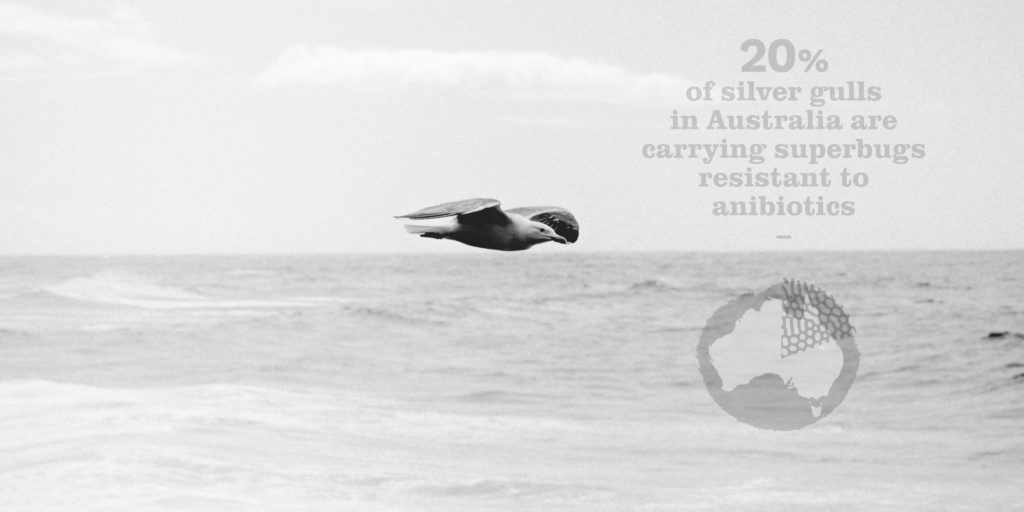Last month marked World Microbiome Day (June 27th), in which many individuals, organizations and companies celebrated all things associated with the microbiome.
Launched in 2018 by the APC Microbiome Ireland to demonstrate the emergence of the microbiome as a subject with a global impact spanning many different disciplines.
This year’s theme was ‘Antibiotic Resistance’. It highlighted the vital role that antibiotics play in combatting harmful bacterial infections, the impact that has on the beneficial bacteria of the human, animal and plant microbiome, and finally the threat of resistance due to overuse and misuse of antibiotics.
To spread awareness of this important day, we asked individuals around the world what they associate with the microbiome. Take a peek at our Instagram to see what they said.
In addition to this, here at The Secret Life of Skin, we wanted to share the big talking points around World Microbiome Day.
Business magazine, Forbes dedicated an article on five ways to celebrate World Microbiome Day, this included trying fermented foods such as kimchi and kombucha, as well as educating ourselves around the amazing things that microbes can do.
Antibiotic resistance
It should be no surprise that this was a key focus in conversation. Highlighting the severity of the issue, a study has found more than 20% of silver gulls all over Australia are carrying superbugs resistant to antibiotics. This study highlights concerns raised around one of the most serious threats to modern medicine, antimicrobial resistance and hints at the possibility of disease-causing bacteria spreading from the birds to humans, livestock and pets.
Since the national awareness day, World Microbiome Day has shared a hypothetical article by The Economist makes reference to a world of antibiotic resistance in 2041, with a dramatic increase in deaths and infections.

Importance of gut health
The diversity of gut microbiome has again been linked with plant types in diet. Dr Rob Knight, founding Director of the Center for Microbiome Innovation and Professor of Pediatrics at the University of California San Diego, discussed the importance of helping our microbiome to flourish as we try to prevent antibiotic resistance. Read the full interview online here.
During World Microbiome Day, Biotechnology company Illumina shared an article on its live events Twitter account highlighting a new study by immunologists. The study has shown that through faecal transplants from young to aged mice the gut immune system can be revived.
BBC Science Focus Magazine celebrated World Microbiome Day by sharing a previous article on tips at how to restore healthy gut flora and increase the good bacteria in our bodies.
American Scientist also repurposed content in celebration of World Microbiome Day, in the form of a Q&A podcast from 2017 regarding research on using gut bacteria to avoid the symptoms of lactose intolerance.
Cancer research and awareness charity, Cancer Research UK celebrated World Microbiome Day by raising awareness of the research its scientists are undertaking around exploring gut bacteria in the hope of finding new cancer treatments.
Following the national awareness day, World Microbiome Day has since made reference to a study that suggests disruptions in the gut microbiome caused by antibiotics, diet or environmental factors may make the central nervous system more vulnerable to damage from viruses.[1]
Infant nutrition & health
To mark World Microbiome Day, Nutricia and academic publisher, John Wiley and Sons, Ltd. (Wiley) announced the publication of The Biotics Family in Early Life. The publication examines the influence of the gut microbiota on immunity and explores the role ‘dietary biotics’ in early life, to ensure the development of a balanced microbiota and normal immune function development.
Also, on the topic of infant health, Harvard Health posted an article on the intestinal colonization after elective caesarean section. The nature of intestinal colonization after birth has a profound effect on a newborns capacity to develop intestinal protection against infection and inflammatory disease.[2] The microbiome is an ever expanding area of research and current studies and research are allowing new parents to learn about their babies developing bacteria, and how colonization can have a huge impact on their babies health in the future.
Oral health
In the day prior to World Microbiome Day, the European Research Council published an article referencing the role played by the oral microbiome in lung disease. ERC grantee Dr Randi Bertelsen, hypothesis that oral microbiome communities dominated by bacteria with strong inflammatory effects, will have a negative effect on the respiratory tract.[3]
Read about oral bacteria here.
[1] https://www.eurekalert.org/pub_releases/2019-07/e-gmp071519.php
[2] https://www.health.harvard.edu/blog/supporting-your-newborns-health-intestinal-colonization-after-elective-cesarean-section-2019070517262
[3] https://erc.europa.eu/projects-figures/stories/healthy-lungs-start-your-toothbrush
